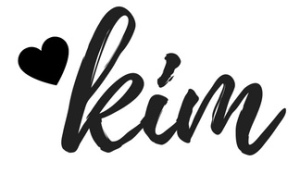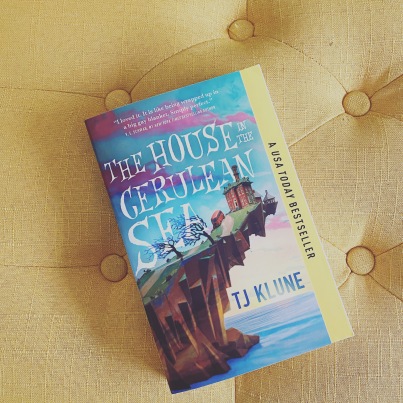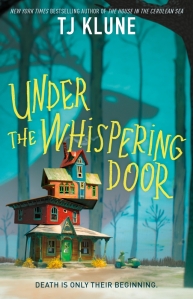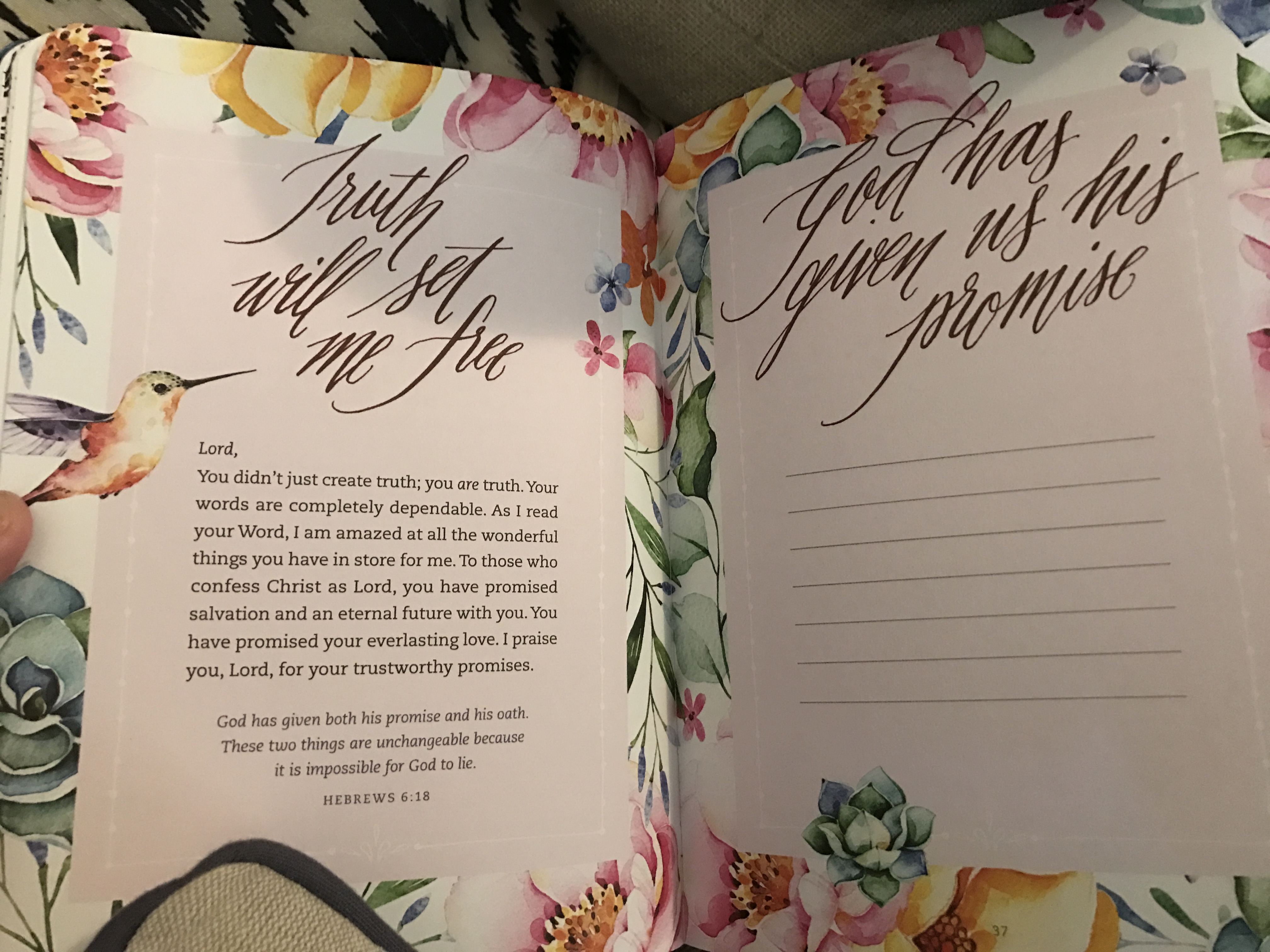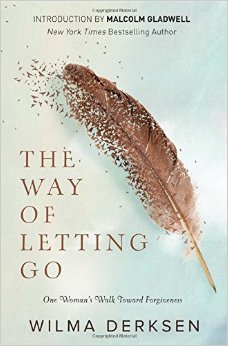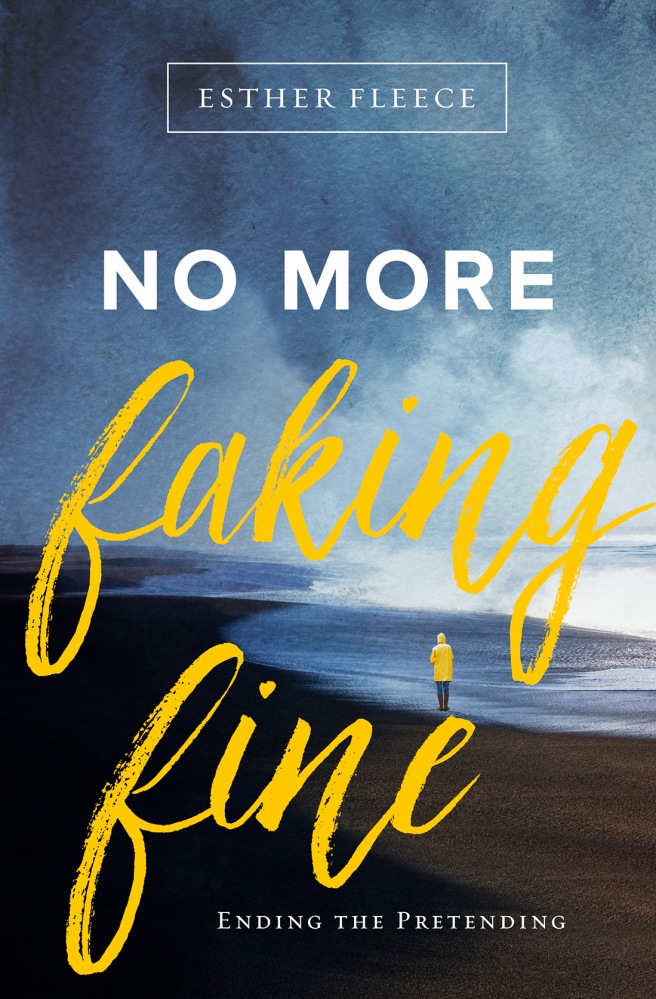I read 40 books in 2020. It would have been more, but I read almost nothing until May because of the anxiety of the beginning of the year and the start of the pandemic. January is always a super busy month for me at work and just in general, and then by February my super spider anxiety senses were tingling about all that was happening in the world. By April, I was managing a whole new world (as were we all) of working from home with four online schooling kiddos. By May I had started to find a bit more of a routine and was able to start adding books back into my schedule. I also discovered how very much I love listening to books (thank you, Audible!) and that changed the reading game entirely for me this year. As you can imagine, four kids schooling from home can often get noisy, and being able to pop in my earbuds and listen to Michelle Obama’s beautiful voice was just the sort of escapism I needed during this dumpster fire of a year. Now, on to the books.
As I said, I read 40 books this year. Before May, I read four books. After May 1, I read 36 books. Here’s the breakdown of what I read:
16 fiction (sidenote: this is the most fiction I’ve ever read in a single year. In fact, this is more fiction than I typically read over a 5-10 year period. I’ve always preferred nonfiction / memoir, but perhaps that’s changing – oh, I do hope so.
9 memoir (I generally try to read at least one memoir a month, so this is a tad low for me)
15 Nonfiction (Again, a low number for me – even for half a year)
Here are my favorites in each category (in no particular order)
Fiction:
The Book of Longings – Sue Monk Kidd
 I can’t tell you how much I LOVED this book. Now, you should know that I grew up in the church and have been in ministry for about twenty years, so I know the Bible intimately and had quite a bit of knowledge of the historical time period before going into this book (which I think helped me to connect with the setting and the characters). I’ve been a Sue Monk Kidd fan for many years and when I saw that she was writing a book about the fictional wife of Jesus, I pre-ordered that baby immediately. I was nervous about how she would handle the enormity of writing a book with Jesus as a significant character, but she obviously did a ton of research and handled every biblical element with thoughtfulness and intentionality. The main character in this book, Ana, felt real and flawed and almost holy to me – I connected immediately to her thoughts, feelings and dreams as a woman in ministry whose calling has been challenged, questioned and mocked many, many times over the years. While Jesus is present in the book, he is more of a peripheral character. Another peripheral character that I can’t stop thinking about is Ana’s brother, Judas. There were moments in this book (which I listened to on Audible) where I had to pause, rewind, and listen to again. The writing, as I expected from Sue Monk Kidd, is superb; the characters are supremely real, and the setting is vivid and whole and entirely immersive.
I can’t tell you how much I LOVED this book. Now, you should know that I grew up in the church and have been in ministry for about twenty years, so I know the Bible intimately and had quite a bit of knowledge of the historical time period before going into this book (which I think helped me to connect with the setting and the characters). I’ve been a Sue Monk Kidd fan for many years and when I saw that she was writing a book about the fictional wife of Jesus, I pre-ordered that baby immediately. I was nervous about how she would handle the enormity of writing a book with Jesus as a significant character, but she obviously did a ton of research and handled every biblical element with thoughtfulness and intentionality. The main character in this book, Ana, felt real and flawed and almost holy to me – I connected immediately to her thoughts, feelings and dreams as a woman in ministry whose calling has been challenged, questioned and mocked many, many times over the years. While Jesus is present in the book, he is more of a peripheral character. Another peripheral character that I can’t stop thinking about is Ana’s brother, Judas. There were moments in this book (which I listened to on Audible) where I had to pause, rewind, and listen to again. The writing, as I expected from Sue Monk Kidd, is superb; the characters are supremely real, and the setting is vivid and whole and entirely immersive.
Lincoln in the Bardo – George Saunders
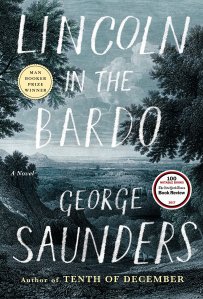 I had no frame of reference going into this book, as it is my first George Saunders. This is his first novel, though he has written many collections of short stories (which I now must devour with gusto). I have told just about everyone about this book. It’s a work of art, truly. Part historical fiction, part hilarious, part biography, part gut-wrenching tale of a father’s love for his son – I cannot recommend Lincoln in the Bardo highly enough. I made my husband read it, because everyone SHOULD read it, and he has been telling everyone about it now, too! I listened to it on Audible, which I very much recommend, and because of the vast number of actors who offered their talents in the telling I can’t think of this book without smiling, or laughing or just feeling really happy. I’m hoping beyond hope that George Saunders will write another novel soon – his wit and quirk are everything I love in a good story. And this, my friends, is a VERY good story.
I had no frame of reference going into this book, as it is my first George Saunders. This is his first novel, though he has written many collections of short stories (which I now must devour with gusto). I have told just about everyone about this book. It’s a work of art, truly. Part historical fiction, part hilarious, part biography, part gut-wrenching tale of a father’s love for his son – I cannot recommend Lincoln in the Bardo highly enough. I made my husband read it, because everyone SHOULD read it, and he has been telling everyone about it now, too! I listened to it on Audible, which I very much recommend, and because of the vast number of actors who offered their talents in the telling I can’t think of this book without smiling, or laughing or just feeling really happy. I’m hoping beyond hope that George Saunders will write another novel soon – his wit and quirk are everything I love in a good story. And this, my friends, is a VERY good story.
Longbourn – Jo Baker
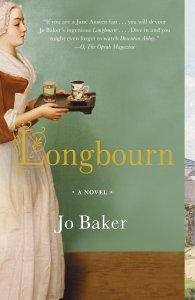 I’m a sucker for all things Jane Austen. I re-read her novels regularly – at least one or two a year. I was worried I wouldn’t like this one – especially with all the hype surrounding it. But I did! Like other reviewers have said, you kind of forget that Pride and Prejudice is the backdrop of this little novel because the characters are so vivid all on their own. The setting feels authentically Austen, while the story is a lovely little twisty, turny love story akin to any of Jane’s novels – but especially Pride and Prejudice, of course. If you’re looking for a feel good, well-written, love story set in Regency England (without all the uncomfortable sex scenes) – this might just be the perfect book for you. I’m longing for more books like Longbourn – if you have any recommendations, definitely send them my way!
I’m a sucker for all things Jane Austen. I re-read her novels regularly – at least one or two a year. I was worried I wouldn’t like this one – especially with all the hype surrounding it. But I did! Like other reviewers have said, you kind of forget that Pride and Prejudice is the backdrop of this little novel because the characters are so vivid all on their own. The setting feels authentically Austen, while the story is a lovely little twisty, turny love story akin to any of Jane’s novels – but especially Pride and Prejudice, of course. If you’re looking for a feel good, well-written, love story set in Regency England (without all the uncomfortable sex scenes) – this might just be the perfect book for you. I’m longing for more books like Longbourn – if you have any recommendations, definitely send them my way!
The Invisible Life of Addie Larue – V.E. Schwab
 After all the hype surround this one, I felt compelled to give it a go. And I’m super glad I did. This isn’t my normal style of fiction – I prefer literary fiction and this is definitely more fantasy/contemporary, but it’s a fabulous story! I felt, at times, that the writing skill didn’t quite match the story (several common writing phrases repeated over and over), but the plot was so compelling and the characters were so thorough that I almost didn’t care. The main character, Addie Larue (obviously), was very well fleshed out – I really felt as though I could picture her and understand what was happening in her head and heart. The other main character felt supremely real to me also. This is a suspenseful, yet pensive story of a girl turned woman trying to understand her own mind and emotions. Really excellent read.
After all the hype surround this one, I felt compelled to give it a go. And I’m super glad I did. This isn’t my normal style of fiction – I prefer literary fiction and this is definitely more fantasy/contemporary, but it’s a fabulous story! I felt, at times, that the writing skill didn’t quite match the story (several common writing phrases repeated over and over), but the plot was so compelling and the characters were so thorough that I almost didn’t care. The main character, Addie Larue (obviously), was very well fleshed out – I really felt as though I could picture her and understand what was happening in her head and heart. The other main character felt supremely real to me also. This is a suspenseful, yet pensive story of a girl turned woman trying to understand her own mind and emotions. Really excellent read.
The Midnight Library – Matt Haig
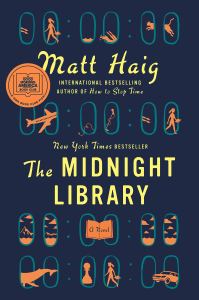 Matt Haig is a magnificent storyteller. This story felt so unique and surprising that I read it in just a few days. While the characters and setting are magnificent, the social commentary masterfully threaded throughout the pages of this book is what makes it so current and meaningful. I wanted to write questions and my own thoughts in the margins the whole time I was reading. The story, on its own, is lovely and I can’t think of a reason why everyone wouldn’t just love it. This is the first time I’ve read anything by Matt Haig, but I feel like I need to find everything he’s ever written and read it anon. There are a ton of mental health themes throughout this short novel, all handled with immense care and thoughtfulness. If you’ve ever struggled with depression, this book will bring you hope and fill your soul with little nuggets of joy and love.
Matt Haig is a magnificent storyteller. This story felt so unique and surprising that I read it in just a few days. While the characters and setting are magnificent, the social commentary masterfully threaded throughout the pages of this book is what makes it so current and meaningful. I wanted to write questions and my own thoughts in the margins the whole time I was reading. The story, on its own, is lovely and I can’t think of a reason why everyone wouldn’t just love it. This is the first time I’ve read anything by Matt Haig, but I feel like I need to find everything he’s ever written and read it anon. There are a ton of mental health themes throughout this short novel, all handled with immense care and thoughtfulness. If you’ve ever struggled with depression, this book will bring you hope and fill your soul with little nuggets of joy and love.
Memoir:
Educated – Tara Westover
 I’ve been hearing about this book for years. Everyone seems to love it. I was told it would be difficult, and it was, but it is also fascinating and gut-wrenching and enormously important. Tara Westover is a skilled writer and this book truly reads like fiction. I had to keep reminding myself that this is a real story, about real people, that actually happened – because it’s almost difficult to believe it could have been true. The abuse in this story is enormous, but the resilience and triumph is also pretty enormous as well. If you’re not inspired after reading this memoir, you might not have been paying attention. Educated is one of the best-written memoirs I’ve ever read – and I’ve read a ton of memoirs.
I’ve been hearing about this book for years. Everyone seems to love it. I was told it would be difficult, and it was, but it is also fascinating and gut-wrenching and enormously important. Tara Westover is a skilled writer and this book truly reads like fiction. I had to keep reminding myself that this is a real story, about real people, that actually happened – because it’s almost difficult to believe it could have been true. The abuse in this story is enormous, but the resilience and triumph is also pretty enormous as well. If you’re not inspired after reading this memoir, you might not have been paying attention. Educated is one of the best-written memoirs I’ve ever read – and I’ve read a ton of memoirs.
Becoming – Michelle Obama
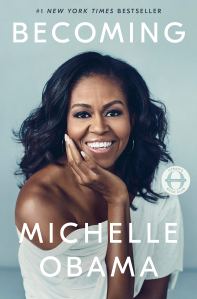 Reading Becoming by Michelle Obama felt like sunshine, like warm coffee on a cold morning, like cozy blankets by the fire – like desperately needed comfort from America’s favorite mom. I listened to this book on Audible – read by the author – and there is just something so lovely about falling asleep to the sound of Michelle Obama’s voice telling you everything is going to be okay. Now, I know that wasn’t necessarily the purpose of her memoir, but it was a definite theme throughout. Expertly written, this memoir is an instant favorite of mine. Covering her early years as much as her time as First Lady, I got more than a glimpse of her motivations, inspirations and intentions as she wrote about growing up on the Southside of Chicago, struggling with fertility, juggling motherhood and her career, being married to the president, and trying to make a difference in the world without forgetting who she is and where she comes from. It’s a remarkable read – and one I hope you’ll read and love for yourself.
Reading Becoming by Michelle Obama felt like sunshine, like warm coffee on a cold morning, like cozy blankets by the fire – like desperately needed comfort from America’s favorite mom. I listened to this book on Audible – read by the author – and there is just something so lovely about falling asleep to the sound of Michelle Obama’s voice telling you everything is going to be okay. Now, I know that wasn’t necessarily the purpose of her memoir, but it was a definite theme throughout. Expertly written, this memoir is an instant favorite of mine. Covering her early years as much as her time as First Lady, I got more than a glimpse of her motivations, inspirations and intentions as she wrote about growing up on the Southside of Chicago, struggling with fertility, juggling motherhood and her career, being married to the president, and trying to make a difference in the world without forgetting who she is and where she comes from. It’s a remarkable read – and one I hope you’ll read and love for yourself.
I Know Why the Caged Bird Sings – Maya Angelou
 I’m a little upset with myself that I never read this before. I’m also a little upset that this book isn’t required reading for high school students. I actually thought this was a fiction book, until I got about halfway through and looked it up. It’s exquisitely written, and will stay with you for a very long time – perhaps (and hopefully) forever. I, again, listened to this book on Audible and Maya Angelou reads it herself. There are a few parts in the book where she’s describing songs in the church service, and as she reads the book she SINGS THE SONGS – which was the most lovely treasure! Her voice (not just her singing voice, but that too) is commanding yet tender, strong yet vulnerable – it’s everything I expected and hoped it to be. Absolutely required reading – the beginning of a very important journey into the heart and soul of Maya Angelou.
I’m a little upset with myself that I never read this before. I’m also a little upset that this book isn’t required reading for high school students. I actually thought this was a fiction book, until I got about halfway through and looked it up. It’s exquisitely written, and will stay with you for a very long time – perhaps (and hopefully) forever. I, again, listened to this book on Audible and Maya Angelou reads it herself. There are a few parts in the book where she’s describing songs in the church service, and as she reads the book she SINGS THE SONGS – which was the most lovely treasure! Her voice (not just her singing voice, but that too) is commanding yet tender, strong yet vulnerable – it’s everything I expected and hoped it to be. Absolutely required reading – the beginning of a very important journey into the heart and soul of Maya Angelou.
Non-Fiction
Factfulness – Hans Rosling
 Facts, charts, statistics – woo hoo! I love statistics, and charts, and color coding and this book is chock full of them! I raced through this little book – on Audible – in less than a week and then asked for the physical copy so I could read it again while enjoying the lovely charts. There was a load of surprising information throughout this book that will most likely change your perspective on the world and your outlook on it. Factfulness, by Hans Rosling, is full of truth and hope – which, in my opinion, is a fabulous combination. I learned more in these 352 pages than I have in the majority of everything else I read all year. If you’re into truth and fact (and statistics!), you should give this book a go – I promise it will give you some things to think about.
Facts, charts, statistics – woo hoo! I love statistics, and charts, and color coding and this book is chock full of them! I raced through this little book – on Audible – in less than a week and then asked for the physical copy so I could read it again while enjoying the lovely charts. There was a load of surprising information throughout this book that will most likely change your perspective on the world and your outlook on it. Factfulness, by Hans Rosling, is full of truth and hope – which, in my opinion, is a fabulous combination. I learned more in these 352 pages than I have in the majority of everything else I read all year. If you’re into truth and fact (and statistics!), you should give this book a go – I promise it will give you some things to think about.
Dear Ijeawele, or a Feminist Manifesto in Fifteen Suggestions – Chimamanda Ngozi Adichie
 I’m pretty sure that I highlighted over 60% of this book. It’s so very short (80 pages), but so very full and meaty. Every single woman should read this book – in fact, we should read it to our daughters. In fact, men should read it too. In fact, we should also read it to our sons. So basically everyone, everywhere should read this fantastic little book. Here’s a tiny snippet from her 8th suggestion:
I’m pretty sure that I highlighted over 60% of this book. It’s so very short (80 pages), but so very full and meaty. Every single woman should read this book – in fact, we should read it to our daughters. In fact, men should read it too. In fact, we should also read it to our sons. So basically everyone, everywhere should read this fantastic little book. Here’s a tiny snippet from her 8th suggestion:
“Teach her to reject likability. Her job is not to make herself likable, her job is to be her full self, a self that is honest and aware of the equal humanity of other people.” (p36)
“We have a world full of women who are unable to exhale fully because they have for so long been conditioned to fold themselves into shapes to make themselves likable.” (p37)
You see? Full, and lovely and meaty words from a master writer and magnificent human.
The Color of Compromise – Jemar Tisby
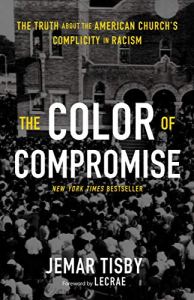 I’m not going to lie – this book messed me up a bit. I didn’t know how very much I didn’t know and it made me cry and reckon and stew and feel entirely undone. I grew up in the Southern Baptist denomination and, for the most part, thought I had a pretty ok experience. I’m realizing now how much of what I was taught was a lie based on prejudice. We (the collective evangelical church) have spent years ignoring the abhorrent racism in our past and pretending that it doesn’t inform our ministries today and into the future. Without a significant shift, or at least an intentional re-learning of our history, the church will become even more detached from the reality of the moment in which we are living – a moment filled with racial divisions, significant systemically racist issues, and a lack of understanding of the black experience in America. So many things in this book were new to me and I’m appalled by that truth. I’m also inspired by it. Inspired to learn as much as I possibly can in the future – I want to have eyes wide open to the truth of all that America has been, all that it currently is and all that it could be. After reading The Color of Compromise I added about two dozen other books to my TBR about the history of racism, social and racial justice, and important writers/influencers on these important subjects. I hope to grow and learn more every day – and am enormously thankful for Jemar Tisby’s words and wisdom along the way.
I’m not going to lie – this book messed me up a bit. I didn’t know how very much I didn’t know and it made me cry and reckon and stew and feel entirely undone. I grew up in the Southern Baptist denomination and, for the most part, thought I had a pretty ok experience. I’m realizing now how much of what I was taught was a lie based on prejudice. We (the collective evangelical church) have spent years ignoring the abhorrent racism in our past and pretending that it doesn’t inform our ministries today and into the future. Without a significant shift, or at least an intentional re-learning of our history, the church will become even more detached from the reality of the moment in which we are living – a moment filled with racial divisions, significant systemically racist issues, and a lack of understanding of the black experience in America. So many things in this book were new to me and I’m appalled by that truth. I’m also inspired by it. Inspired to learn as much as I possibly can in the future – I want to have eyes wide open to the truth of all that America has been, all that it currently is and all that it could be. After reading The Color of Compromise I added about two dozen other books to my TBR about the history of racism, social and racial justice, and important writers/influencers on these important subjects. I hope to grow and learn more every day – and am enormously thankful for Jemar Tisby’s words and wisdom along the way.
Untamed – Glennon Doyle
 I’ve loved Glennon Doyle for nearly a decade. Her first book, Carry On, Warrior, is one of the most important books I’ve read in many years. Glennon turned me on to other writers, too, like Gregory Boyle, Bryan Stevenson and Brené Brown (all favorites of mine now). Her essay-style of writing is my very favorite and her voice is steady, warm and full of vulnerability. She’s equally hilarious and wise, with an authority and authenticity that is unmatched. Some of her stories will stay with you forever, spurring you on towards a more wholehearted way of living and loving – she truly is such a rare gift to the reading world. If you’ve never read a single word she’s written before, Untamed is a wonderful place to start. It’s her most full and strong book – inspiring and a little uprooting in the most glorious of ways. This book will make you take a long, hard look at your life and ask questions you’ve always been too scared to ask before. If you, like me, are prone to philosophical wondering, you will absolutely love this book.
I’ve loved Glennon Doyle for nearly a decade. Her first book, Carry On, Warrior, is one of the most important books I’ve read in many years. Glennon turned me on to other writers, too, like Gregory Boyle, Bryan Stevenson and Brené Brown (all favorites of mine now). Her essay-style of writing is my very favorite and her voice is steady, warm and full of vulnerability. She’s equally hilarious and wise, with an authority and authenticity that is unmatched. Some of her stories will stay with you forever, spurring you on towards a more wholehearted way of living and loving – she truly is such a rare gift to the reading world. If you’ve never read a single word she’s written before, Untamed is a wonderful place to start. It’s her most full and strong book – inspiring and a little uprooting in the most glorious of ways. This book will make you take a long, hard look at your life and ask questions you’ve always been too scared to ask before. If you, like me, are prone to philosophical wondering, you will absolutely love this book.
That’s it. All my favorites. I hope you’ll find one (or two, or five) that you might want to read for yourself. There were a ton of good books I read in 2020, these just happened to be my favorites of the year. If you’d like to know what else I read in 2020 and am planning to read in the future, you can connect with me on Goodreads or Instagram.
Happy reading!


